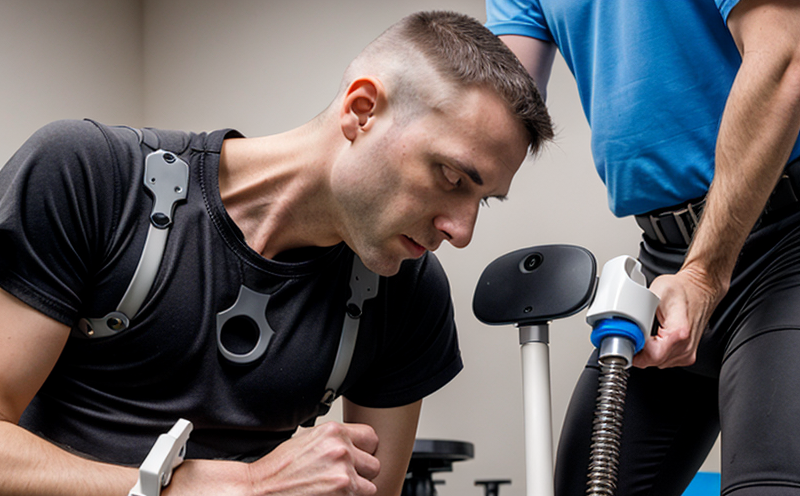ISO 7207-2 Knee Prosthesis Dimensional Accuracy Testing
The ISO 7207-2 standard is a pivotal document within the orthopedic and prosthetic device testing sector. It defines the dimensional accuracy requirements for knee prosthesis components, which are critical in ensuring that these devices fit properly into patients' bodies without causing discomfort or additional stress to the surrounding tissues.
The knee joint is one of the most complex joints in the human body and requires precise design and manufacturing. Any deviation from the specified dimensions can lead to poor fit and function, potentially resulting in increased wear, pain, and reduced mobility for the patient. Therefore, ensuring dimensional accuracy during the development and production processes is paramount.
The testing procedure outlined in ISO 7207-2 involves a series of measurements that are taken using precision instruments such as coordinate measuring machines (CMMs) or laser scanners. These tools provide accurate readings of key dimensions, including but not limited to the diameter and length of the femoral component, the position and angle of the tibial tray, and the curvature of the patellar component.
The process begins with careful preparation of the prosthesis specimen. This involves ensuring that the specimen is clean, dry, and free from any contaminants or residues that could affect the measurement accuracy. Once prepared, the specimen is placed on a stable platform within the testing apparatus. The CMM or laser scanner then captures multiple points across the surface of the component to generate a three-dimensional model.
The data collected during this process is compared against the design specifications provided in ISO 7207-2. Acceptance criteria are stringent, and any deviations from these standards must be addressed by the manufacturer before the device can proceed further into clinical trials or commercial release. The use of advanced metrology tools ensures that even minute variations in dimensions are detected.
Quality managers, compliance officers, R&D engineers, and procurement personnel all play crucial roles in this testing process. Quality managers ensure that all tests adhere to the prescribed standards, while compliance officers verify that these activities comply with regulatory requirements. R&D engineers contribute by providing insights into design parameters and potential improvements based on test results. Procurement teams may also be involved in selecting suppliers who can meet these stringent accuracy requirements.
Quality and Reliability Assurance
- Precision Instrumentation: The use of state-of-the-art CMMs and laser scanners guarantees high precision measurements, reducing the risk of human error.
- Repeatability: Multiple readings are taken to ensure consistency across different batches or units of production.
- Data Analysis: Advanced software tools analyze the collected data to identify patterns and trends that can indicate potential issues in manufacturing processes.
Competitive Advantage and Market Impact
- Innovation Facilitation: By adhering strictly to ISO 7207-2, manufacturers can innovate without compromising on safety or performance. This allows them to explore new materials and designs that enhance the functionality of knee prostheses.
- Patient Satisfaction: High dimensional accuracy leads to better fitting devices, which in turn improves patient comfort and satisfaction with the product.
Eurolab Advantages
At Eurolab, we pride ourselves on providing comprehensive testing solutions that meet the highest international standards. Our expertise in medical device testing allows us to offer unparalleled services tailored specifically for knee prosthesis manufacturers.
We have a team of experienced professionals who are well-versed in ISO 7207-2 and other relevant standards. This ensures that our clients receive accurate, reliable results every time. Our state-of-the-art facilities house the latest metrology equipment, allowing us to perform precise measurements with minimal room for error.
Our commitment to quality does not stop at testing. We also offer consulting services that help manufacturers understand and implement these standards effectively. This includes training sessions on proper specimen preparation, detailed explanations of acceptance criteria, and guidance on how to interpret test results.





